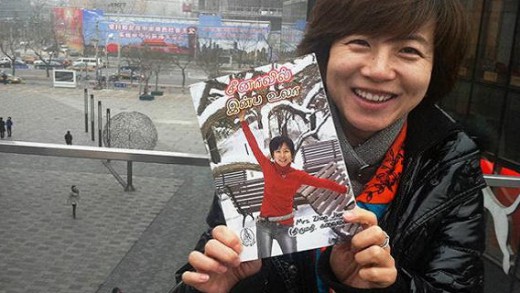I ask you to not to prejudge the content of this piece. Let me just assure you that this is not yet another “radical feminist” article. The purpose of this article is not to prove that Tamil males are sexist Neanderthals who are bent on enslaving the female population. Rather, I would like to discuss the difficulties that Tamil women face in integrating themselves into Western society while maintaining their cultural identities. I speak openly, honestly and without inhibition – that is, I speak as a Tamil woman.
What are the necessary attributes of a respected Tamil woman one may ask? Well, most would reply, “modesty, innocence, domesticity, respectability, and let’s not forget chastity; one that is so inexperienced with dealing with the opposite sex that the word ‘male’ is equivalent to another species.”
These characteristics may be a feasible reality in our homeland where society is structured significantly differently. But those traits are all but impossible to preserve in Canada. In our homeland, it is much easier to be a typical Tamil woman; shy subservient to parental pressures, and dominated by the husband, the sole breadwinner. But it is impractical and I would argue impossible to remain so in Canada.
To begin with, more and more Tamil parents are demanding that their daughters earn university degrees and work in jobs that pay more money in order to sustain the economic stability of the family. Even if parents do not expect their daughters to contribute to daily living costs such as food and rent, many young women end up paying for their university education, a responsibility that parents or a brother traditionally shouldered.
This transferring of responsibilities is understandable as tuition is high in this country and many parents simply cannot afford it. However, although parents are more than willing to transfer family responsibility from son to daughter or from parent to child, they are unwilling to grant their daughters the degree of freedom that is accorded to their sons.

Women cannot be independent. They are either dependent on their parents, their brother, their husbands or their children. Women are raised to doubt their own decisions. They are told not to ask questions, to be obedient, to behave like a girl and not draw attention to themselves.
How then can you expect women to ask a question during lectures, to be assertive in the workplace, or to take an interest in their finances? One cannot succeed in life without initiative and confidence – and these are things that are deconstructed the minute a Tamil girl hits puberty.
Women are also discouraged from socializing with their own peers. “Don’t talk on the phone, be home before six, and never, ever go near Tamil boys.” It doesn’t matter if you are 16 or 26 – the same rules apply until you are married. You may have a job and you may have listened to your parents’ every command whether you agreed or not. But you still have to ask permission for something as trivial as having a cup of coffee with an old schoolmate. Trivial to you. “What will other people say” to them.
Tamil men. What to do? What to say? Our parents can be understood for their judgmental views, for these are the values and morals that have been the very fibre of their upbringing. But Tamil men today cannot be as easily excused if they would like to have their cake and eat it too.
The same Tamil men who would complain about unapproachable Tamil women are the same ones who would not hesitate to destroy a woman’s reputation when her friendliness is suddenly branded as promiscuity. In Tamil culture, the cornerstone of a woman’s self-worth is her reputation. Once that has been compromised, so has her honour, dignity and pride.

These are the same men who would date extensively but expect their wives never to have had a boyfriend. These men do not want a strong, independent learned woman but a second mother. An educated woman is seen as a show piece. “It’s nice that the girl has brains but she shouldn’t use them.” So women are either seen as morally loose or God-like pure; they are never viewed on the same level as men. And so the cycle of servitude and submission begins for yet another generation of Tamil women.
Westernized Tamil women are not only influenced by parents, but also by the media, peers and Western philosophy. At some point in their lives, Tamil women begin to think somewhat naively – but at the same time idealistically – that gender equality can be possible in this country at least. Eventually, they all become sorely disappointed.
Tamil parents and Tamil men – we implore you to realize that women cannot remain encased in glass domes where life remains static. We do not need to be protected but encouraged. At times, we may fall. But we should be allowed to stand back up, not cruelly pushed further down as so often occurs. Some of us survive as idealists, but many fail miserably and pay the consequences for the rest of our lives.
So parents, treat daughters like your sons. And husbands, treat your wives like your friends. We are not disrespecting you. Rather, we are asking that you finally respect us.
– Malathy M.
The views expressed in this article are those of the author and do not necessarily reflect TamilCulture’s editorial policy.
Related: The Good Girl Complex

 Guest Contributor
Guest Contributor









